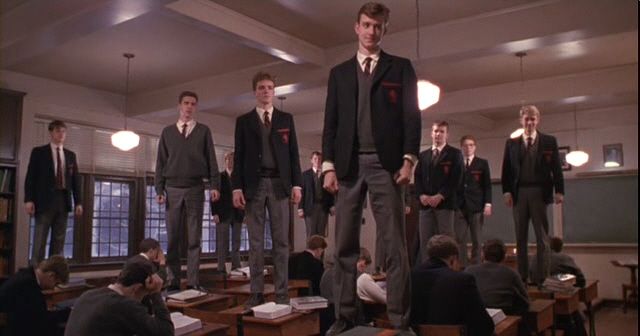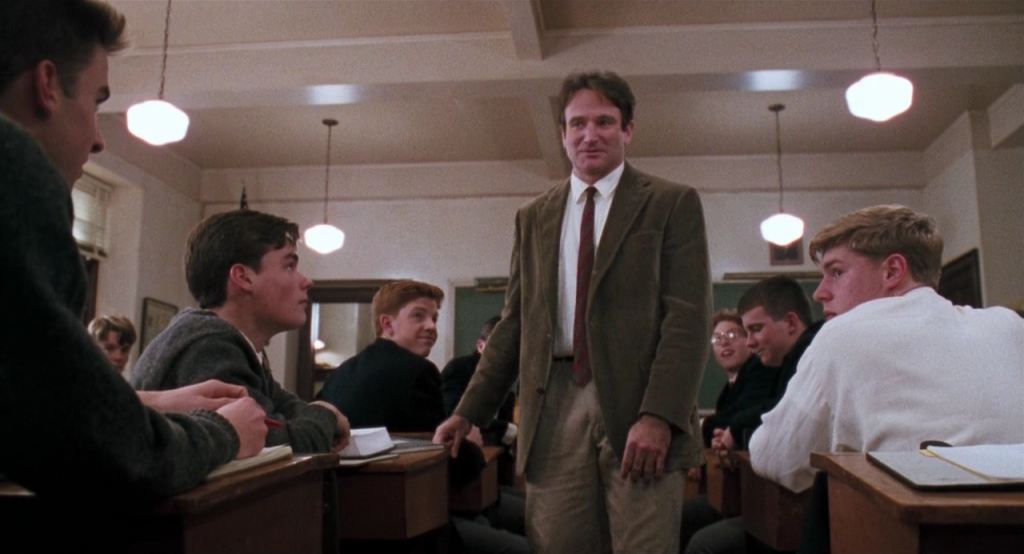It was without a doubt the most unique extra-credit assignment in high school, though my world history teacher gave it to the class within weeks of starting freshman year. He told us to watch Dead Poets Society and tell him what we thought about it.
To be honest, I did not get nearly as much out of the assignment as I could have. The movie didn’t quite hit me then. I think it was because I was too caught up in the trappings of high school for its message to sink in. But when I rewatched the film a few months ago, I discovered it is crucial as I begin to look beyond college and into adulthood.
In the wake of Robin Williams’ death, the film has been weighing heavily on my mind. Some of its greatest quotes have been exchanged back and forth on Facebook statuses as a tribute to one of the country’s most beloved entertainers. But as quotable as Dead Poets Society is, there is a special spirit about the movie that cannot be contained in any of its stunning one-liners.
Nowadays, the “inspirational teacher challenges the mindset of apathetic students” film genre has been done to death, but this movie strives to do more than just show a bunch of aloof preppy guys finding passion through the power of an unabashedly optimistic teacher and some snappy inspirational dialogue. It challenges the viewer as well.

Dead Poets Society
Dead Poets Society is an oddly immersive film. Like it or not, as the audience, you are cast as one of the boys in Mr. Keating’s class at the prestigious Welton Academy. You join the students for their first lesson. You follow them on their adventures beyond the classroom. You meet in the cave as a member of the new “Dead Poets Society.” As you lose one of your own, the immortality you thought you had quickly shatters in front of you.
You can’t help but sit at rapt attention at John Keating’s lectures, indulging in his whimsical nuggets of wisdom. There is just such an earnestness and natural likability to his character that you can’t help but get sucked into the film’s lofty quest for truth and beauty. Though I love his goofier roles as much as the next ‘90s kid, there’s something truly moving about the effortlessness of Robin Williams’ performance in the film. Williams is so flawless and natural, it doesn’t seem like he was even acting; it’s almost hard to believe he wasn’t actually Keating. Of all the masks Williams wore in his career as an entertainer, this one seems the most inconspicuous.
By following so closely with the boys in Keating’s class, the movie takes you on an staggering emotional journey; the story manages to hit powerful notes around every corner, and it’s hard not to laugh and weep along with the Welton students. Even if you were reluctant to take on these lessons at first and hesitated to rip out the pages from the poetry textbook at the beginning, you feel quite liberated by having gone along for the ride.
Seeing Dead Poets Society as an upperclassman in college has reminded me of something that is easy to forget when we are being bombarded with spooky reminders of economic instability, record unemployment rates and the lessening value of a college education: Pursuing your passions is not a dirty thing. Like many humanities majors, I have that one family member who always gives me a condescending look when a well-meaning aunt asks “What you are studying?” or “What you want to do after college?” I’m used the jokes about how my degree will only allow me to get a position at Starbucks. I get it. English doesn’t hold the same social caliber as engineering, medicine or business.
But Dead Poets Society reminds you that there is no shame in following your heart. I could have chosen any path in college, but I can’t imagine being any happier with the choices I have made regarding my education. “No matter what anybody tells you, words and ideas can change the world,” Mr. Keating says. Dead Poets Society is a much-needed reminder that our futures are not set by our degrees, but by our desires.
“Carpe diem,” Mr. Keating says. “Seize the day. Make your lives extraordinary.”





